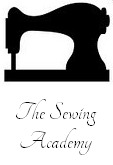“Is That Real”: Or, Why You’re Not Allowed To Tater-Snark
Tater-snark: Verb. A portmanteau derived from “Spectator” (noun; visitor or observer) and “Snark” (adjective; synonyms include sarcasm, ridicule). To respond in an annoyed or snarky way to questions from visitors or spectators (or their charming tater-tots) who ask questions such as:
“Is that fire real?”
“Is that food real?”
“Is that baby real?”
“Are you hot in that?”
Yes, you’ve probably heard one of these questions, or a variant thereof, a full one-hundred times in a single day.
Yes, on the surface, these questions can seem “silly.”
And No, you’re not allowed to pitch a fit over any of it. If you’re tending toward yet another round of tater-snarking, either in-real-life or on-line, please reconsider doing public-facing events. Ever.
Here’s why, in a fairly compact but firmly-meant tirade:
It’s just rude in any century.
And rude = unproductive interaction, with high level risk of damage.
Why, when presented with an opportunity to share something we love with people who aren’t as experienced in it, would we risk turning them away empty-handed just because they didn’t ask a question in the precise wording we’d prefer?
It’s our burden, not the visitor’s.
Loads of “history people” ramble on and on about being “in this for public education” to “educate the public” since our society is so woefully ignorant of history.
That very statement should warn us that we’ll run into a lot of visitors who don’t have context for our specific era, the habits and practices and society of it all. Why should they have? It’s not their particular passion. They have no obligation to come to a history presentation, event, program, or demo with grand fore-knowledge and a master’s-thesis-level understanding of what we’re sharing.
We do.
It’s our chosen hobby/work/calling. It’s our job to share context and information effectively. It’s none of their burden at all, and we’re being foolish if we expect it to be.
If I’m not willing to educate with kindness, consideration, and accurate information, then I need to stop spouting “educating the public” as a goal, and stick with events that are private, no public in attendance.
Every question is an attempt to connect.
Connection = Awesomes.
So let’s re-think the purpose of the question before we are tempted to Tater-snark.
How many times are people presented with fiction and make-believe instead of accurate history? Every time they encounter someone who “hides” a camping cooler under a canvas “box” cover, they get make-believe, not history. Every time someone sees a galvanized tin beverage dispenser on a side-board under a canvas fly in front of a wall tent full of altered 1970s furniture, they get make-believe, not history.
People aren’t asking if that set of items is physically present in this plane of existence.
They’re asking us to share the truth, reassure them that they’re seeing history, not make-believe, and provide some greater context. Let’s answer the unspoken question, not ridicule their attempt to connect!
“Is that a real fire?”: Is that fire made with wood that would have been available here at the time? How did you get it started? Would someone stepping out of a time machine recognize this style of fire as a valid one for the era, and for the use?
“Is that real food?”: Is it seasonal and accurate to the era? How would a person in the past have gotten it? Will it taste the same as it did then? Is it safe to eat right now? Are you preparing it in a manner consistent with history? Are the tools and implements and pots just like what they’d have used in the past?
“Is that a real baby?”: Is it actually a tiny human, or a well-done doll? Are the clothes right for the history era? What about the toys? Did kids really play like that? How can I get hold of the same sorts of things? Are the games fun? How did they feed babies? Why do boys wear dresses? How do the cloth diapers work? Is it gross?
“Aren’t you hot in that?”: How do your clothes work? Are you too warm? Is it safe to wear all that? I’m hot in a tank and shorts–how are you not dead? Was their climate exactly the same as ours? Can I bring you some water? Where do you get your water? Where did they get their clothes? Did they have machines to help? Why is your clothing colorful? What do your clothes say about your life? Really, are you too hot in that?
If I can’t exercise just a tiny bit of creativity to answer the unspoken questions, and fulfill that individual’s attempt at and need for connection with me, a “person of the past”, then I have zero business at events or programs that have a public component.
Even if it’s the fortieth time I’ve heard the question in 15 minutes.
Answering those questions–the real questions behind the questions–that’s my job. It’s my responsibility. If I ever decide I don’t like doing it, then I need to find another style of event that doesn’t include people who ask those questions. Full stop.
Connection = Awesomes.
Tater-snarking is rude, unproductive, and closes off opportunities to connect.
So stop it.
